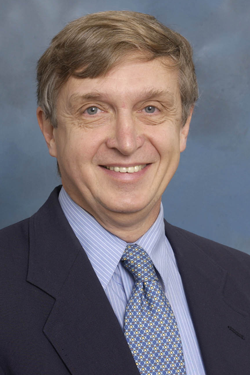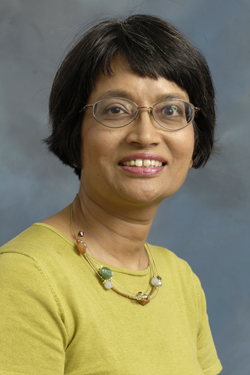Under strict protocols, primary-care doctors are performing safe, effective colonoscopies
August 13, 2010

James Hébert
 Sudha Xirasagar
Sudha Xirasagar
Screening colonoscopies performed by primary-care physicians under strict protocols are as safe and effective as those performed by specialists, according to a new study by researchers from the University of South Carolina’s Arnold School of Public Health.
In the largest published study on the topic in the United States, researchers found performance quality indicators and lesion detection rates in screening colonoscopies by primary-care doctors are comparable to documented rates for experienced gastroenterologists.
Colon cancer is one of the few preventable forms of cancer. A colonoscopy is considered the best test available to identify and prevent colorectal cancer. Primary-care physicians perform a small fraction of colonoscopies -- about 2 percent of those performed nationally in 2002 and 5.7 percent in South Carolina in 2005.
The Arnold School researchers pointed out that the 10,958 colonoscopies by 51 primary-care doctors included in the study were performed under strict protocols to ensure patient safety. The tests were performed at a licensed ambulatory surgery center with specialists (gastroenterologists or GI surgeons) available in case there were technical difficulties in completing the procedure, in removing large polyps or in managing any major complications that can occasionally arise with this procedure.
The study’s results were published online in the July issue of the journal, Medical Care. Funding for the study came from two grants from the National Cancer Institute along with USC’s Division of Health Sciences and the Center for Colon Cancer Research.
The findings are significant because there are not enough gastroenterologists to perform colonoscopies on everyone eligible to receive one. There is a 50 percent colonoscopy screening gap between those who have the procedure v. those who are eligible to be screened. That is attributed partly to the lack of specialists who perform the test, said Dr. James Hébert, professor of epidemiology and biostatistics in the Arnold School and director of the Cancer Prevention and Control Program at USC.
“We are short of gastroenterologists. We need at least three and a half times the current number of gastroenterologists to handle the backlog in South Carolina,” said Dr. Sudha Xirasagar, associate professor of health-services policy and management in the Arnold School and the study’s lead author.
During a colonoscopy, a doctor inserts a flexible, lighted tube into the rectum and guides it into the colon, looking for abnormalities or signs of cancer. The doctor may remove pre-cancerous growths, preventing cancer from occurring, and take tissue samples.
The Arnold School study looked at colonoscopies performed at the S.C. Medical Endoscopy Center in Columbia. The colonoscopies were performed by a primary-care physician assisted by two technicians and a nurse anesthetist. A specialist was available on site. The study showed the colonoscopies met or exceeded the standards set by gastroenterologists.
The researchers emphasized that primary-care physicians must receive training from gastroenterologists or colorectal specialists to be competent and effective. They also must develop close partnerships with specialists and have specialized screening equipment and anesthetists available.
“These are replicable processes by which a patient may receive the same screening results with primary-care doctors if those doctors follow the specialists’ guidelines and receive specialist training,” Xirasagar said.
About the study: “Quality and Safety of Screening Colonoscopies Performed by Primary Care Physicians with Standby Specialist Support” was funded by three grants from the National Cancer Institute. Those grants were part of a pilot project under the Community Networks Program parent grant awarded to the S.C. Cancer Disparities Community Network, and the Established Investigator Award in Cancer Prevention and Control from the Cancer Training Branch of the National Cancer Institute. Additional support was received from the University of South Carolina’s Division of Health Sciences and the Center for Colon Cancer Research.



_01.jpg)
_02.jpg)